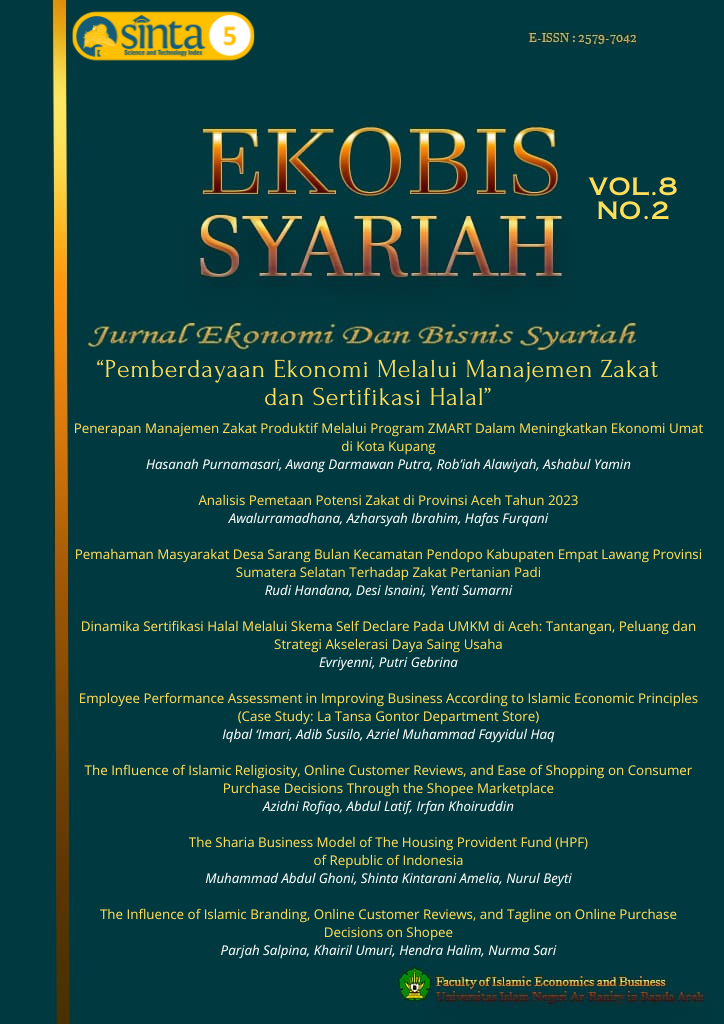The Sharia Business Model of The Housing Provident Fund (HPF) of Republic Of Indonesia
DOI:
https://doi.org/10.22373/ekobis.v8i2.26201Keywords:
Sharia Business Model, Sharia Principle, The Housing Provident FundAbstract
This study introduces a sharia model of the HPF of republic of Indonesia. since, the Housing Provision Fund promotes housing investment and enables early house purchase for individuals with low income. The aim of this paper is presently sharia business model of provident fund and its implementing strategies to reduce the population of those needing adequate housing of Indonesian. This paper operates an extensive literature review explains the existing of housing provident fund model based on the sharia principle. The Sharia-compliant business model of the provident fund in the Republic of Indonesia is a relatively new mechanism that operates based on the principles of Shariah. It is designed to be fair and strives to achieve the ultimate goals of Sharia by establishing the Housing Provident Fund (HPF). The implementation of the Sharia business model in the housing provident fund of the Indonesian government can be replicated in other Muslim countries. As far as we know, this research is the first in the literature to present a conceptual idea and model for the sharia business model of housing provident fund that complies with Sharia principles.Downloads
Published
2024-12-17
Issue
Section
Articles
License
EKOBIS allows the author(s) to hold the copyright and to retain the publishing rights without restrictions. Authors who publish with this journal agree to the following terms:
- Authors retain copyright and grant the journal right of first publication with the work simultaneously licensed under a Creative Commons Attribution License (CC-BY-SA 4.0) that allows others to EKOBIS the work with an acknowledgment of the work's authorship and initial publication in this journal.
- Authors are able to enter into separate, additional contractual arrangements for the non-exclusive distribution of the journal's published version of the work (e.g., post it to an institutional repository or publish it in a book), with an acknowledgment of its initial publication in this journal.
- Authors are permitted and encouraged to post their work online (e.g., in institutional repositories or on their website) prior to and during the submission process, as it can lead to productive exchanges, as well as earlier and greater citation of published work

